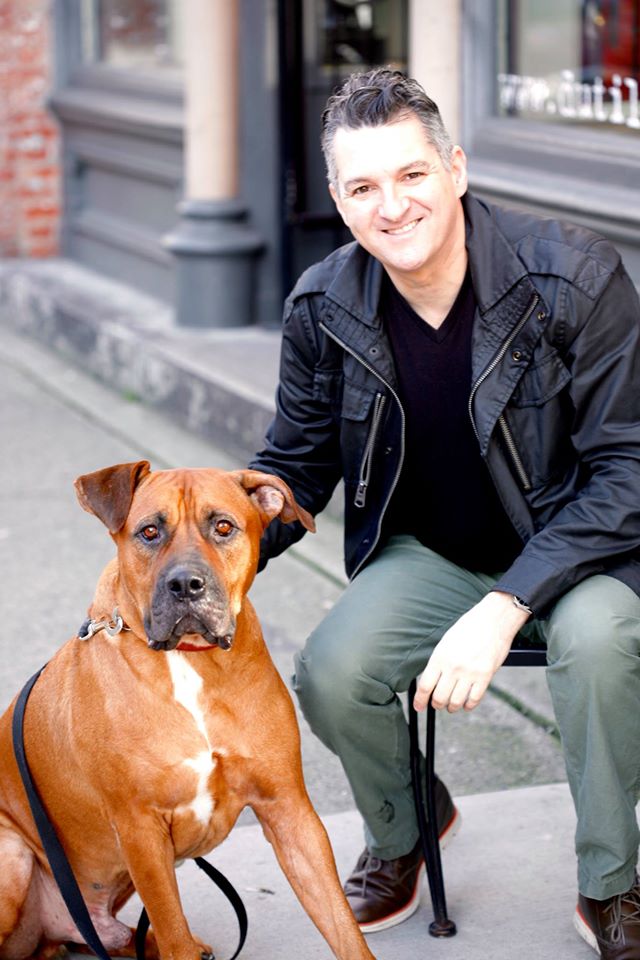About The Book & Author
What is the book about?
#MeToo. #TimesUp. Climate change. Civil unrest and racial divide. The erosion of discourse and dialogue, and the Age of Misinformation propogated through social media. The rise of tech-corporation monopolies and AI technologies in our daily lives. Pandemic...
We live in unsettling and unprecedented times, those which are threatening our very survival and future as a species, as well as the natural biosphere itself.
In 1974 cultural anthropologist Ernest Becker (a Simon Fraser University professor, 1969-1974) was posthumously awarded the Pulitzer Prize for Non-Fiction, two months following his death, for his ground-breaking 1973 book The Denial of Death. In the book Becker drew on Sigmund Freud, Otto Rank, Søren Kierkegaard and other looming philosophical and psychological figures to lay out a thesis about existential crisis. Becker's view is that our basic existential fear of mortality is expressed through both a visceral and symbolic defense mechanism. We assert a kind of heroic symbolic self as our individual 'immortality project' in reaction to the fundamental fact that we cannot control what Buddhism calls impermanence. Our never-ending quest for 'progress' at the cost of balance is ample evidence of this heroic 'hubris.' On the personal level, the anxiety of finite mortality for some, amidst the age of neoliberalism and individualism is marked by addiction and other compulsive, self-destructive behaviours.
The fever pitch to which our technologically-driven, material, self-obsessed and narcissistic culture has led us to brink of extinction sadly proves Becker's thesis true to date. Yet, particularly since the mid-20th century, social movements of feminism, ecology, anti-racism and anti-colonialism have thrust social inequality into the global spotlight, and the urgent demands for egalitarianism, plurality and reconciliation have risen to the fore in societies across the globe. In tandem with the spread of Buddhism in the West and a growth in consciousness and popularization of mindful awareness, there have been great strides towards a compassionate view. And yet, here we are.
This book takes a 'therapeutic' view where Becker's work left off. It seeks to examine the world as a living entity, as anima mundi, according to ancient and indigenous worldviews. If the world is wounded--traumatized--as it were, beyond the notion of basic existential conundrums of mortality and individual identity, how do we approach the resultant problems from a place of healing? The world is sick.
As inheritors of a 30,000 year-old 'triune' brain structure our physiological trauma response is still triggered in brain's 'limbic system.' As many of us know, we freeze, take flight or turn and fight when faced with threat. But what if that 'threat' results from negative associations, intergenerational conflict, bias and prejudice inflamed by social forces? The author's vast experience in healing trauma through psychotherapy, and in training dozens of students to learn to recondition their own reactivity in the face of 'attack' through the principles of Aikido, this book brings the personal and the social together with a view to stabilizing the world through empathy, social cooperation and even altruistic (mutual benefit) principles in action.
Who is the author?
 Michael A. Gordon, PhD, is an author, educator, psychotherapist and 6th Dan Aikido teacher. His book
Michael A. Gordon, PhD, is an author, educator, psychotherapist and 6th Dan Aikido teacher. His book  Aikido As Embodied And Transformative Pedagogy: Teacher As Healer came out of his work as an award-winning doctoral student at Simon Fraser University, and was published by Springer/Palgrave MacMillan in 2019.
Aikido As Embodied And Transformative Pedagogy: Teacher As Healer came out of his work as an award-winning doctoral student at Simon Fraser University, and was published by Springer/Palgrave MacMillan in 2019.As a psychotherapist Michael takes a trauma-based and mind-body approach to his work, centered on
 EMDR therapy. His clinical practice approach which extends to a 'transpersonal psychology' perspective (that which transcends our individual ego, our connection with the universal) combines with the spiritual philosophy of Aikido--known as the 'art of peace.' This holistic view of the individual within the universe, focusing on our capacity to be calm, present, open and engaged informs the mission of this book towards healing the world from division and separateness from nature. He also loves dogs.
EMDR therapy. His clinical practice approach which extends to a 'transpersonal psychology' perspective (that which transcends our individual ego, our connection with the universal) combines with the spiritual philosophy of Aikido--known as the 'art of peace.' This holistic view of the individual within the universe, focusing on our capacity to be calm, present, open and engaged informs the mission of this book towards healing the world from division and separateness from nature. He also loves dogs.